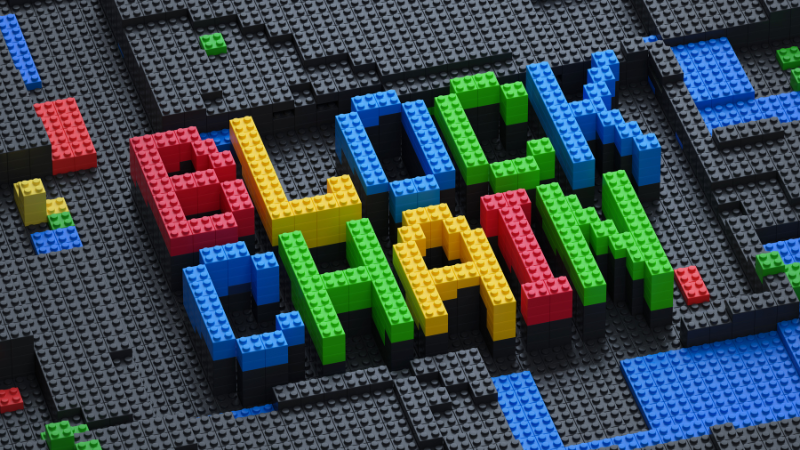Exploring NFT in Gaming Industry
NFT in gaming has become popular, letting players own and trade their in-game items.
In this article, we talk about how NFTs work, their uses in gaming, and the technology behind them, offering an understanding of NFT meaning in games.
Table of content
Key Highlights
- NFTs let players truly own their in-game items. These items are independent of the game itself, thanks to blockchain technology.
- NFTs are used for unique in-game items like skins, weapons, or characters. Players can buy, sell, or trade these items.
- Some games reward players with NFTs that have real-world value. This creates financial incentives for gameplay.
- The rarity and authenticity of NFTs can be verified on the blockchain, which adds value and desirability.
- Some games let NFTs be used across multiple platforms and increase their utility and value.
- The rise of NFTs in gaming has led to high trading volumes, and some items have become highly valuable collectibles.
- The NFT market is volatile and lacks clear regulations. For this reason, it poses risks and uncertainties.
- The use of NFTs in gaming is likely to grow, and more games will adopt these tokens and create new economic models.
- Games like CryptoKitties, Axie Infinity, and Decentraland use NFTs letting players collect, trade, and own virtual assets.
How Are NFTs Used in Gaming?
NFTs use a special online ledger to keep track of who owns them. There are some ways NFTs are used in crypto gaming:
- Digital Collectibles → games have started to use NFTs for collectible items, such as special skins, weapons, or characters. These items are unique and can be bought, sold, or traded on various platforms
- Ownership and Trading → unlike traditional games where the items are tied to the game and cannot be transferred, NFTs enable players to trade or sell their assets outside the game on NFT marketplaces.
- Play-to-Earn Models → some games reward players with NFTs that can have real-world value. This play-to-earn model offers financial rewards, and gamers value it a lot.
- Origin and Rarity → on the blockchain, you can easily see where an NFT was minted or sold. This helps show that it's real and can make it more valuable and wanted by players.
Benefits of NFTs in Gaming
Non-Fungible Tokens offer some unique benefits. To understand these advantages fully, one should understand how NFTs work:
True Ownership
Unlike traditional games, where your purchase is tied to your account and can't be moved. NFTs are stored on a blockchain, which means you can sell, trade, or keep them independently of the game.
Proven Rarity
NFTs are unique. This means that if a game says there are only 100 copies of a special sword, you can check the blockchain and confirm that there are indeed only 100.
Interoperability
Some games are being developed to use NFTs across multiple platforms and games. This means that a sword you buy in one game could potentially be used in another game, as long as both games support the same NFT standards.
Collectibility and Value
If a game becomes popular, the NFTs associated with it could become more valuable, providing an opportunity for players to profit from selling their items. Just like physical collectibles, NFTs can increase in value over time.
Immutability
Once you acquire an NFT, the record of ownership cannot be changed or erased because it's stored on a blockchain. This means your items are more secure and less likely to be lost or stolen.
Play-to-Earn Model
Some games reward players with NFTs for playing the game or achieving certain milestones. These NFTs allow players to potentially earn income by playing games.
Digital Ecosystems
NFTs enable the creation of complex digital economies within games, where players can become creators or traders, contributing to the game's ecosystem and economy.
Royalties for Creators
When game developers create NFTs, they can program in a royalty system so that they receive a percentage of sales whenever their NFT is sold on the secondary market. This provides an ongoing revenue stream.
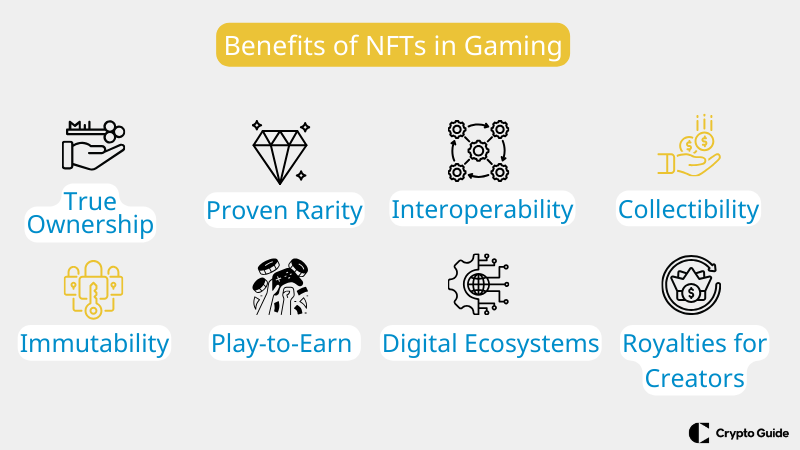
Economic Impact
NFTs has sparked both excitement and skepticism regarding their economic impact:
Economical Benefits:
- NFTs let artists and creators sell their work directly to fans without needing middlemen and find new ways to make money.
- It is a new type of investment that people and companies can buy. They are special digital items that can be collected and owned like art or trading cards.
- NFTs are digital certificates showing who owns things like online art, songs, or video game stuff. They help keep track of who owns what and make it easier to prove it's really yours.
- It helps grow the online business, bring new ideas, and create more jobs and chances to make money.
Economical Drawbacks:
- The market for NFTs is new and doesn't have firm rules yet. This means their prices can change a lot and it's hard to know what they're really worth.
- Some NFTs are very expensive and you need to know a lot about technology to get involved. This can make it harder for people who don't have much money or tech skills to join in, which could make unfairness worse.
- Laws about NFTs are still being figured out. This means it's not always clear who owns an NFT and there's a chance they could be used in the wrong way.
Legal and Regulatory Considerations
Non-Fungible Tokens are often connected to digital art or music. But there's a big question about whether owning an NFT means you own the art or music it's linked to.
It's unclear if buying an NFT gives you full rights to the content or just the digital token. This confusion can cause problems for artists who make stuff, people who collect it, and the websites that sell it.
Right now, there aren't clear worldwide rules for NFTs. This can cause problems and uncertainties for people who buy, sell, or create NFTs:
- Without clear rules, it's hard to tell if investing in NFTs is safe or worth it, which makes it easier for scams and fraud to happen.
- Creators who want to profit from NFTs can run into problems because the rules about who owns the rights and how to use them can be confusing.
- NFT marketplaces might be tricky because the rules aren't very clear. This could lead to legal or money problems.
Future Trends and Predictions
NFT in gaming is becoming more and more popular. Here's what might happen with NFTs in gaming as time goes on:
- We'll probably see more games that use NFTs, letting players own unique items or characters.
- Players might be able to trade or sell their NFTs to others, making gaming more like a marketplace.
- Some games could let players earn NFTs that have real value, so playing could also mean making money.
- Games might offer special NFTs as collectibles or rewards for achievements.
- We could see brand-new types of games that are built around the idea of collecting and using NFTs.
- There could be entire virtual worlds and items within games owned as NFTs.
Examples of NFT Use in Gaming
CryptoKitties
Each CryptoKitty is unique and owned by the player through a digital wallet. Players can breed their CryptoKitties to create new and unique offspring with traits inherited from their parents, enhancing their rarity and value. Introduced in 2017, CryptoKitties gained popularity for pioneering NFTs on the Ethereum blockchain.
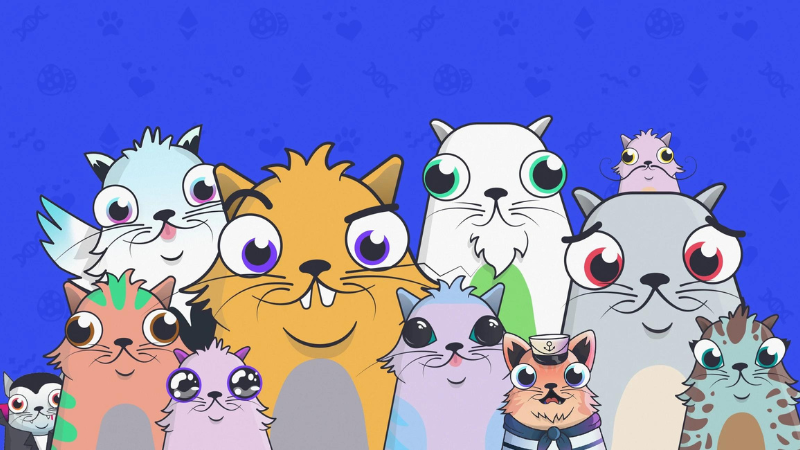
Axie Infinity
Axie Infinity is a blockchain-based game where players collect, breed, and battle digital creatures called Axies. It runs on the Ethereum blockchain, using Axie Infinity tokens (AXS) and Smooth Love Potion (SLP) for in-game transactions like breeding and trading Axies.
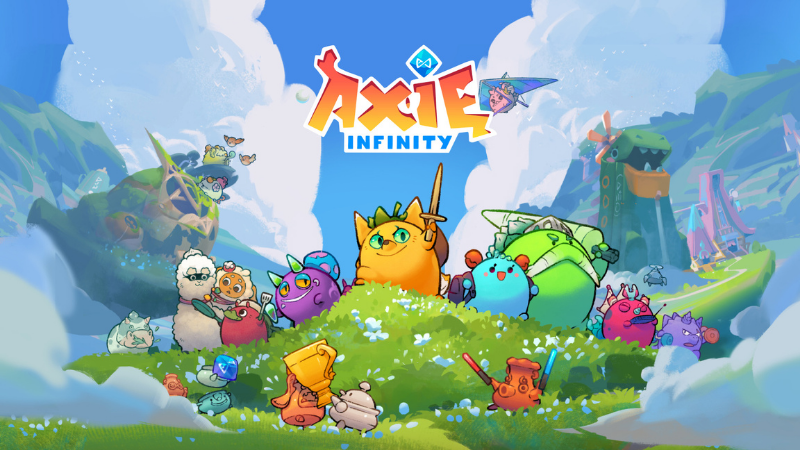
Decentraland
Decentraland is a 3D social networking and gaming platform within the Metaverse. Here, everything—from shopping and social interactions to work, daily activities, and entertainment—takes place in a fully digital, virtual, or augmented reality environment.
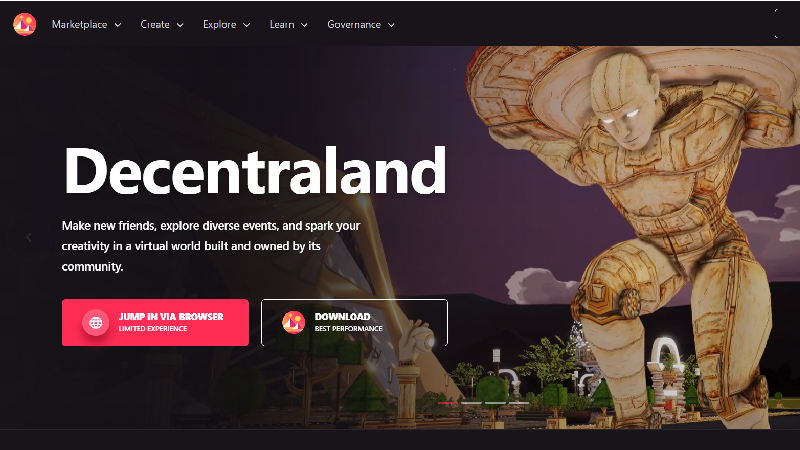
NFT in Gaming Conclusion
NFTs are changing the way we play games. They let players really own, trade, and make money from the things they find or earn in games. To understand the impact of NFTs, it's important to look at blockchain technology in gaming. Even though there are ups and downs in value and rules that aren't clear yet, NFTs are still popular. They offer true ownership, limited amounts, and chances to earn while playing.
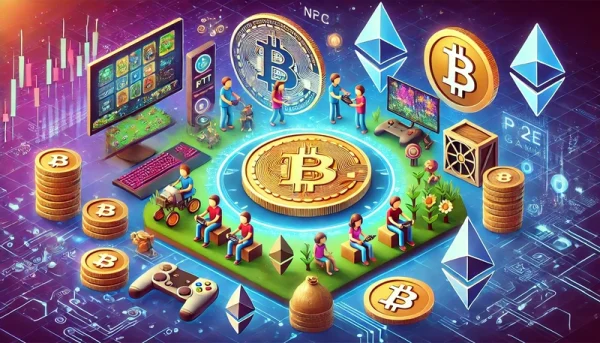
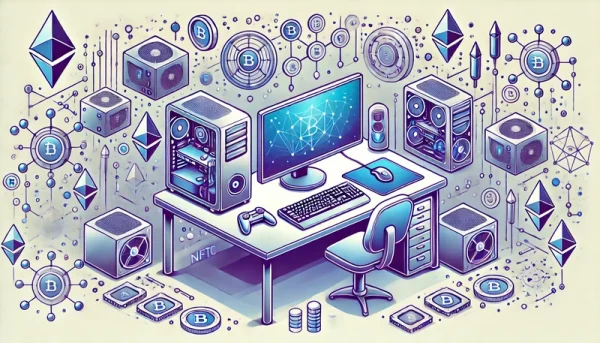
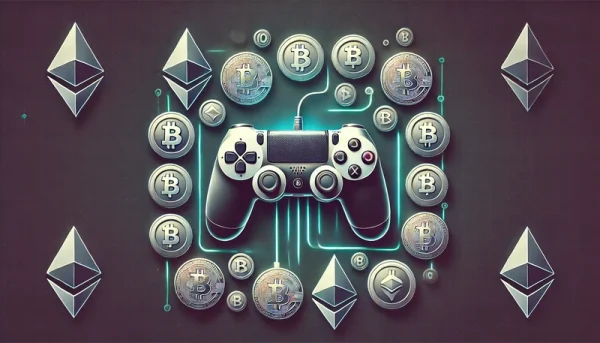
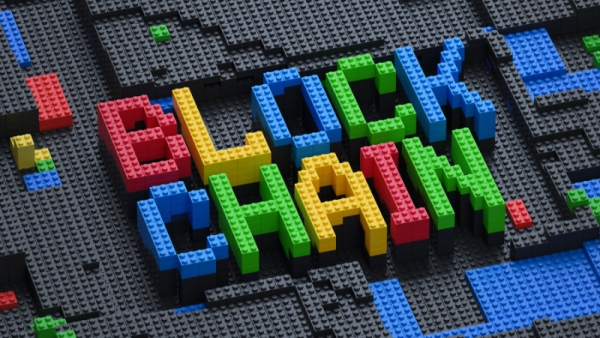
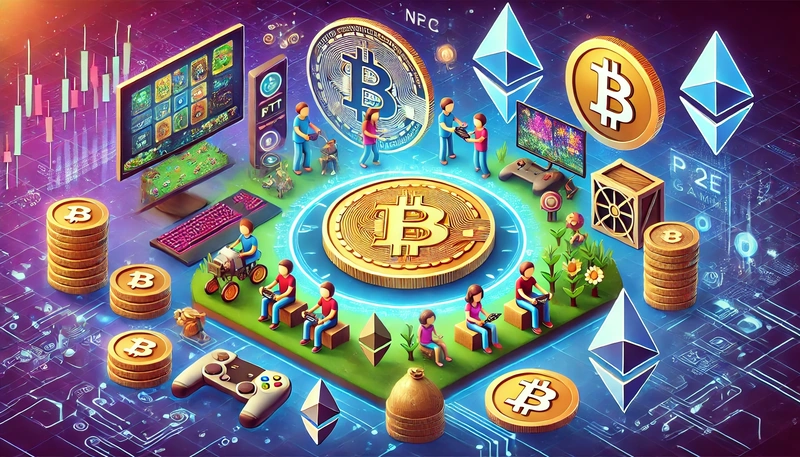
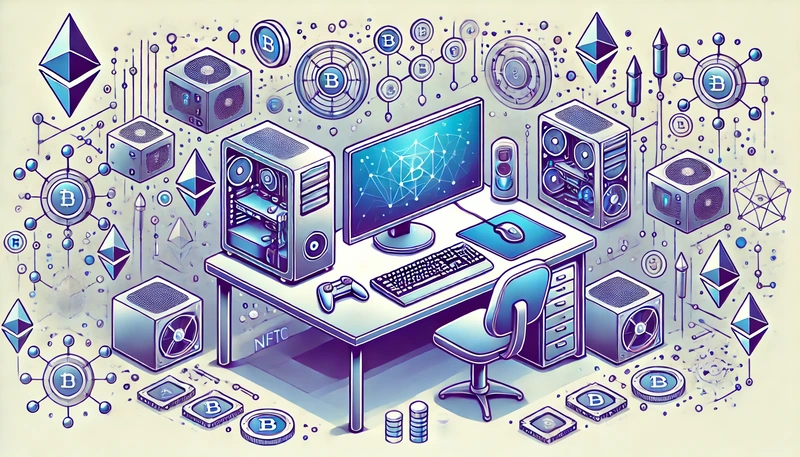
![Top 10 Crypto Games To Play in [year]](https://betoncrypto.io/app/uploads/2024/11/image1-2.webp)
